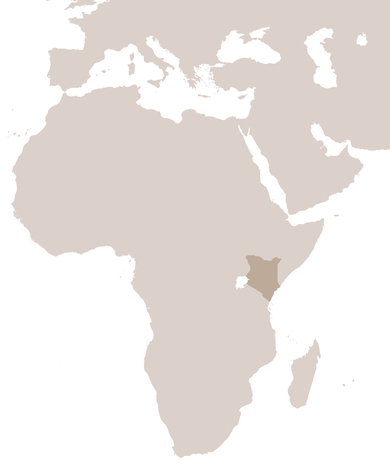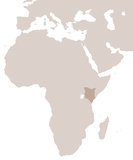Kenya
Kenya
Refugees:
Approximately 650 mostly Jewish refugees from the German-speaking areas.
Political situation:
British crown colony; racial segregation; emerging anti-colonial resistance. September 1939: Entry into the war on the side of the United Kingdom, economic and military deployment.
Conditions of entry:
Restrictive immigration policy decreed by the British colonial administration; entry only occasionally possible; immigration papers were expensive. Considered by Jewish organisations and the British government as a potential place of settlement for Jewish refugees, although never realised.
Only few refugees managed to get to Kenya, mostly to work as farm managers. The exiles, who generally had little agricultural experience, were trained at teaching farms in advance. The refugees found their role within the colonial society and the unusual living conditions challenging: they belonged to the privileged white population yet they were expelled refugees and were unwanted by the European settlers. Emigrants were interned after the war began. They could only be released upon presentation of proof of agricultural employment. From 1944 the British army recruited refugees for military service.


